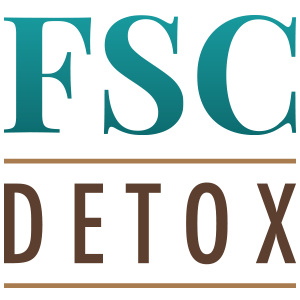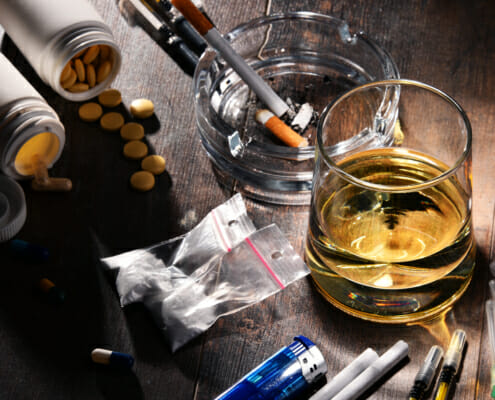6 Steps to Help Someone with an Addiction

Watching a loved one suffer from a drug or alcohol addiction can be one of the most painful and emotionally taxing experiences. If you are in this predicament, you may be wondering what steps you can take to help. Our Orange County detox and residential treatment team at Fresh Start of California is here to help you understand the process so you can begin helping your spouse, friend, or family member.
Step 1: Educate Yourself
It can be easy to become frustrated with your loved one. In fact, you might find yourself grappling with thoughts like, “They should just stop doing it,” or “They are so selfish,” but the fact is, addiction leaves the addict helpless. Addiction is a disease, and unless it is properly handled and treated, the addict may be unable to achieve sobriety.
For this reason, the first step should be to educate yourself on addiction and the addict’s disease process. You may even consider learning about the way addiction can affect friends and family. Although the process may still be difficult for you and other friends and family members, educating yourself may allow you to feel normal as you move through the emotional process.
- The Substance Abuse Mental Health Services Administration’s website has many informational and educational resources that can help you learn more about addiction.
Step 2: Get the Support You Need
As you move through the process of helping your loved one get the help they need, it is crucial you have a supportive group that understands the hardships you have and will endure. For this reason, you may want to consider joining one of the following groups:
- Al-Anon: Al-Anon is a support group made up of peers who share their experiences related to the effects of an alcoholic in their lives. Find an Al-Anon meeting near you.
- Nar-Anon: Nar-Anon is a support group made up of peers who share their experiences related to the effects of a drug addict in their lives. Find a Nar-Anon meeting near you.
Step 3: Establish Trust with Your Loved One
This can be the most difficult step, especially if your loved one has already betrayed your trust through the use of drugs or alcohol. However, it is critical you establish a level of trust with your addicted loved one if you want them to consider getting help. Build trust with your spouse, friend, or family member who may be struggling with addiction by keeping the following in mind:
- Do not criticize, lecture, or nag them
- Do not yell at them
- Do not name-call
- Do not engage in ill behavior yourself
While building trust with your loved one, it is also important to do the following:
- Hold them accountable to expectations
- Offer direction to treatment when needed or when they are ready
- Remain patient with them and with yourself
Step 4: Do Not Enable Your Loved One
Trust is not established by enabling your loved one to exhibit bad behavior. Often, an addict will need to experience the consequences of their addiction before reaching out for help. In many cases, family and friends support the person’s addiction without noticing. For this reason, it is critical you remain aware of your own actions and be sure to consider the following:
- Refrain from financially supporting your loved one and his or her addiction
- Do not provide financial assistance to pay for his or her attorney fees and court fines
- Do not pay his or her rent
While all the actions listed above may appear harsh, not following the advice can prolong your loved one’s disease. Remember, an addict cannot achieve sobriety until he or she is ready to receive help or treatment.
Step 5: Communicate with Your Loved One
While you may feel like pushing your loved one to change, remember that they will only move towards treatment options when they make the decision for themselves. It is, however, important to note that they may be more open to change if you communicate honestly and in a way that does not sound pushy or threatening. Be sure to:
- Share your feelings
- Explain what you would like to happen
- Explain what the process of their addiction has been like from your perspective
Step 6: Be Encouraging Throughout the Treatment Process
When your loved one is ready, he or she may ask you to contact a rehab, detox treatment facility, or residential treatment facility. When that time comes, be sure to be open to their desires in regards to the type of program they would like to enter, the location for their treatment, and any other requests they may have. Be sure to speak with multiple treatment centers before deciding on a facility. You want to be sure that the facility’s goals and treatment options are customized for your friend or family member’s addiction. It is crucial to find a treatment center that does not have a cookie-cutter approach for every client.
Need More Help? Call Our Orange County Rehab and Detox Today
If your spouse, friend, or loved one is struggling with addiction and you would like to speak about treatment options, call our Orange County addiction treatment center right away. Backed by a compassionate medically trained treatment team, Fresh Start of California will answer all your questions and find a solution that best fits your needs. We understand the process is difficult, and we want to be there for you.
Call Fresh Start of California at 714-558-2600 for immediate help. Our detox treatment center in Orange County, California accepts client from all over the US. Get the Fresh Start you need today!




